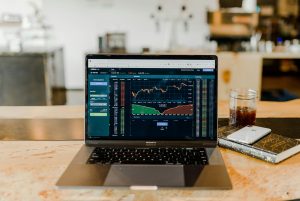Options trading is a dynamic arena where success hinges on continuous learning and swift adaptation. Traders who embrace these principles navigate market shifts with confidence, turning challenges into opportunities. This article explores the vital role of education and flexibility in mastering options trading, offering insights to help you thrive in this ever-changing field. So, if you are looking for a reliable trading platform, you may consider visiting Nerdynator.
The Necessity of Adaptation in Trading
Market Volatility and Uncertainty
Market cycles are like seasons; they come and go. Recognizing these patterns can help traders make better decisions. There are bull markets, where prices rise, and bear markets, where they fall. Each cycle has its phases. For example, a bull market typically starts with a slow rise in prices, gains momentum, peaks, and then starts to decline. Understanding these cycles can help traders decide when to buy or sell options.
Strategies for Coping with Market Unpredictability
Dealing with an unpredictable market can be stressful. One strategy is diversification, spreading investments across different assets to reduce risk. Another method is using stop-loss orders, which automatically sell an option if its price drops to a certain level. This helps limit losses. Some traders also use technical analysis, studying past market data to predict future movements. It’s like trying to see the future by looking at patterns in the past. Keeping emotions in check and sticking to a well-thought-out plan is also crucial.
Technological Advancements and Their Impact
Algorithmic trading uses computer programs to make trading decisions. These programs can analyze market data much faster than humans. They follow specific rules to buy and sell options automatically. This can lead to more efficient trading and often results in better prices. However, it’s important to understand how these algorithms work to use them effectively. Traders should also be aware of the risks, as market conditions can change rapidly, sometimes faster than an algorithm can adapt.
Emerging Trading Platforms and Tools
New trading platforms and tools are making it easier for everyone to trade options. Online platforms provide real-time data, educational resources, and even community forums. Mobile apps allow traders to manage their portfolios on the go. Tools like these can help traders stay informed and make quick decisions. They also offer various features, such as virtual trading accounts for practice without risking real money. Staying updated with the latest technology can give traders a significant edge.
Continuous Education and Skill Enhancement
Sources for Market News and Updates
Staying updated with market news is vital. There are many sources for this information. Financial news websites, like The Wall Street Journal or Bloomberg, provide daily updates. Newsletters and market reports offer deeper insights. Social media platforms, such as Twitter, can also be useful, especially when following financial experts. Podcasts and webinars are great for in-depth analysis. Regularly consuming this content can help traders stay ahead of market changes and trends.
Analyzing Market Data and Reports
Analyzing market data helps traders make informed decisions. This data includes price charts, trading volumes, and economic indicators. Tools like spreadsheets or specialized software can assist in organizing and interpreting this data. Learning to read financial statements and reports is also crucial. These documents provide information about a company’s performance and prospects, which can impact option prices. By analyzing this data, traders can identify potential opportunities and risks.
Advanced Training and Certifications
There are many training programs and certifications for those who want to deepen their knowledge. Organizations like the Chartered Market Technician (CMT) Association offer certifications focused on technical analysis. The Options Industry Council (OIC) provides courses specifically on options trading. These programs cover various topics, from basic concepts to advanced strategies. Earning certifications can enhance a trader’s credibility and skills, making them more effective in the market.
Benefits of Formal Education and Continuous Professional Development
Continuous education helps traders stay competitive. Formal education, such as finance degrees, provides a strong foundation. Professional development courses offer updates on the latest strategies and tools. Networking opportunities through these programs can also be beneficial. Connecting with other traders and industry professionals can lead to new insights and opportunities. Continuous learning ensures that traders keep up with market changes and improve their skills over time.
Psychological Aspects of Adaptation
Mindset and Behavioral Finance
Traders often face psychological challenges. Fear and greed are the biggest culprits. Fear can prevent traders from taking necessary risks, while greed can lead to reckless decisions. Overconfidence is another common issue. It can cause traders to ignore risks and make poor choices. Confirmation bias, where traders only seek information that supports their beliefs, can also be harmful. Recognizing these pitfalls is the first step in overcoming them.
Strategies for Maintaining a Disciplined Trading Approach
Discipline is crucial in trading. Setting clear goals and sticking to a trading plan can help. This plan should include entry and exit points, as well as risk management strategies. Keeping a trading journal to record decisions and outcomes is also beneficial. It allows traders to review their performance and learn from mistakes. Regularly reviewing and adjusting the plan based on market conditions and personal experiences is key to long-term success.
Techniques for Managing Stress and Uncertainty
Trading can be stressful. Managing this stress is essential for making rational decisions. Regular exercise and a healthy lifestyle can improve overall well-being. Mindfulness practices, such as meditation, can help traders stay calm and focused. Taking breaks and ensuring a work-life balance prevents burnout. It’s also helpful to accept that losses are part of trading. Viewing them as learning experiences rather than failures can build resilience.
Conclusion
Thriving in options trading requires more than just knowledge; it demands continuous learning and the ability to adapt. By staying informed and flexible, traders can turn market unpredictability into opportunities. Embrace these strategies to enhance your trading skills, and remember, the journey of learning never truly ends.

